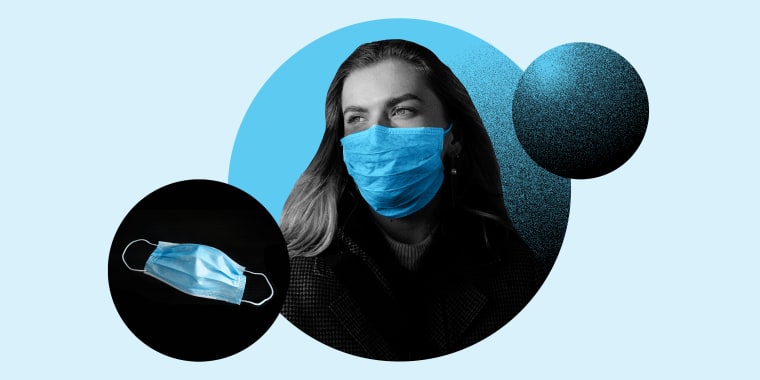In early April, after experts recommended masks for all of us to help prevent the spread of COVID-19, I bought cloth masks from a seamstress friend who was sewing them like crazy from her home in Maine. They fit well and work great, but we only bought one per family member. So we were carefully planning our shopping trips around our laundry schedule.
We’ve added to our mask stash now — we have a basket by the door with about a dozen clean face masks, plus we keep disposable surgical masks in the cars in case we forget to bring one.
While myths are circulating and some people are protesting, experts say masks are effective at reducing the spread of COVID-19. And just about everyone over age 2 should be wearing them, according to the CDC.
Having multiple clean cloth masks is smart, according to Christopher Sulmonte, project administrator for the biocontainment unit at Johns Hopkins Medical Center in Washington, D.C. “There’s a reason we have multiple pairs of underwear — it’s to maintain good hygiene. The same thinking applies to masks. If you have a couple that’s great. You can have one in the wash and a fresh one available,” Sulmonte told TODAY.
When should you clean your mask?
The CDC recommends washing masks after each use. Dr. Graham Snyder, the medical director of infection prevention and hospital epidemiology at the University of Pittsburgh Medical Center, agrees with that advice. But he recognizes that people don’t always clean their masks that often.
If you don’t always wash your mask after each use, Snyder said you need to consider when your mask might get contaminated. Contamination could occur when:
- Somebody who is contagious coughs, sneezes or breathes out droplets that get onto your mask
- You touch a contaminated surface, then touch your mask
“You have to decide when it’s likely to have gotten contaminated,” he said. The more people you encounter, the more likely it is. Passing through a crowd, for example, is more likely to contaminate your mask than walking by a couple of people.
How should you clean your mask?
Snyder and Sulmonte both pointed to the CDC guidelines for face mask care and how to clean your masks. Machine-wash cloth masks with the rest of your laundry at the highest temperature setting appropriate for the fabric used to make the mask. Or, wash cloth masks by hand in 4 teaspoons of bleach per quart of water. Soak for five minutes, then rinse.
Sulmonte also added that soap and water can be used for general mask cleaning. “Scrub the mask for at least 20 seconds with soap and hot water,” he said. “You can then either use a dryer or lay (the mask) flat in direct sunlight until dry.”
Regardless of whether you machine- or hand-wash your mask, "it's important to inspect the mask after washing to make sure it is still intact," said Snyder.
And surgical masks? You can’t clean them. You need to throw them away after they’ve been used.
How should you store your mask?
Snyder said he and his wife have repurposed the key hooks by their door: “The second I step in the door I take my mask off in a way that I don’t contaminate it — I grab it by the ear loops — and I hang it up there on the hook. Then I go wash my hands, because I’m just coming into the house and I don’t want to contaminate anything.”
He emphasized that it’s important to keep a used mask by itself in a spot where it’s not going to contaminate something in your house — don’t throw it on your kitchen counter. And you don’t want germs getting on your mask, either: “I wouldn’t store them in a bathroom or throw them on top of a pile of mail.”
Sulmonte recommends keeping masks in a paper bag by the door, so they stay clean and dry. You can even take the bag with you when you leave in case your mask gets damp, dirty or caked with makeup. “If you get hot and sweaty and you’re feeling uncomfortable, it’s nice to have another dry mask on hand to switch out,” he said.
What about N95 masks and masks with valves?
Snyder doesn’t recommend N95 masks for general use, mainly because they aren’t necessary. “Growing amounts of data say that cloth and surgical masks are effective during day-to-day activities, particularly if you’re doing a good job with social distancing,” he said.
And for fighting COVID-19, masks with valves aren’t a good choice — they’re designed to keep you from breathing in fumes or dust. The valves close when you inhale and open when you exhale, so they don’t protect others from germs you could be breathing out. Cloth or surgical masks are better choices. And people with hearing loss, or those who communicate with them, might want to consider masks with clear panels that make lip reading easier.

